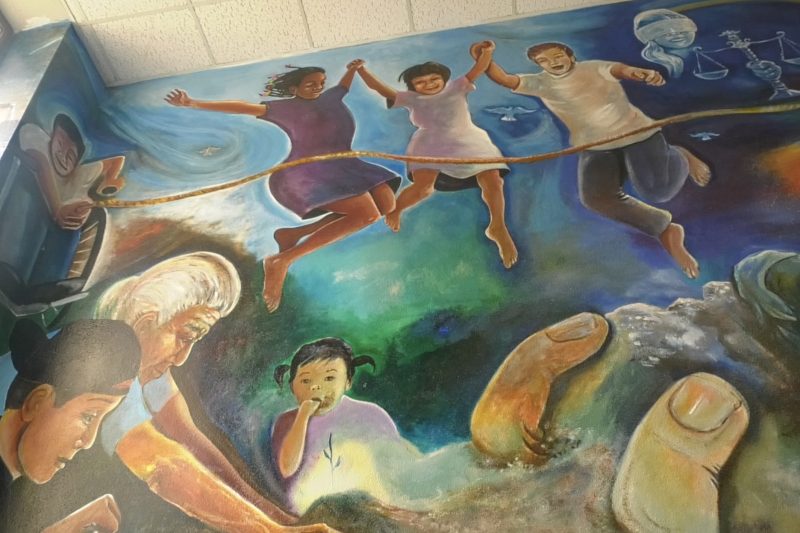UT Social Work Community Reacts to Planned Building Demolition
By Logan Dubel
Reporting Texas TV
AUSTIN, Texas – The building currently home to the Steve Hicks School of Social Work will face a wrecking ball after this semester, as Texas Athletics plans construction of a new practice facility.
“I was surprised that they were taking down something that’s really important to the history of the university, but I was curious about the reasoning behind why it’s been torn down,” said Andres Yengle, a social work freshman whose mother also attended the social work program.
The upcoming demolition of the nearly century-old building in favor of the athletics facility coincides with the Longhorns’ move to the Southeastern Conference (SEC). Texas Athletics did not respond to Reporting Texas TV’s request for comment, but Athletics Director Chris Del Conte said the site will open sometime in 2025.
Despite mixed feelings from students, the School of Social Work’s marketing and communications director J.D. Moore said he is optimistic about the upcoming move.
“The Steve Hicks School outgrew our current space more than a decade ago and the building is beyond its useful life,” Moore said.
“We are even more excited about our future permanent home on Speedway, which will put us in the heart of the Forty Acres and serve as a world-class facility that exemplifies the high quality of our School.”
Retired UT social work professor Kathleen Armenta started the Save the Past for the Future campaign in response to the demolition project. She said the threat of demolition erases not only the place where she worked for a few decades, but a building she said aligned with the program’s mission. In addition to welcoming social work students since 1994, the building once known as University Junior High School was Austin’s first integrated junior high school.
“I developed a strong respect for what the building’s history represents,” Armenta said. “It was a piece of what I incorporated into my teaching, and how it aligned with our social work values.”
Armenta also hopes to salvage the work of Raúl Valdez, an Austin muralist responsible for creating the school’s colorful stairwell.

A mural painted by Raúl Valdez in the stairwell of the the Steve Hicks School of Social Work could be destroyed as the University of Texas at Austin plans to demolish the building after this semester. (Logan Dubel/Reporting Texas TV)
After the Moody Center opened in 2022, Armenta said she knew changes were on the horizon for the building, which she said fell subject to institutional neglect. While she is open to moving the social work program, Armenta said she hopes UT sees value in saving the building and its surrounding tree canopy.
“It needs money and investment to be renovated and repurposed sustainably. UT publishes and speaks widely about its value on sustainability,” she said. “This is a building worth finding a way to keep it on campus, and the eradication of it is short-sighted.”
Some students said the building’s condition is less than ideal.
Fabiola Amaya, a social work sophomore who uses a wheelchair, said she felt relieved when she heard about plans for a new school. She said there is little accessibility to navigate the hills leading up to the entrance and faulty air conditioning.
“I was grateful to be out of that building, because as a social work major and disabled person, I have to go there multiple times a week,” Amaya said.
“The building itself is one of the most inaccessible buildings on campus,” she said.
“It isn’t until I explain that to people cause they’re like, ‘Oh, I didn’t realize how inaccessible it was,’ because it doesn’t impact them directly.”
Classes will move to Walter Webb Hall this fall. A building currently home to the McCombs School of Business will be repurposed for social work students to use in five years.
With many years left on campus, Yengle said he worries about losing the community he found in the school’s current building.
“The building isn’t perfect and it’s important to look towards the future,” Yengle said.
“We’re going to be spread out around campus, which saddens me, because something that I love about the social work school is the community of that building, and the feeling that everybody around me has the same goal to make this world a better place. I feel like we’re going to lose some of that culture.”
While plans remain in motion, Armenta–true to her profession–remains positive.
“The wrecking ball has not struck yet,” she said.
“I’m an optimist, as most social workers are. We work in a field where we tackle issues that seem impossible… This is something we still have hope for.”